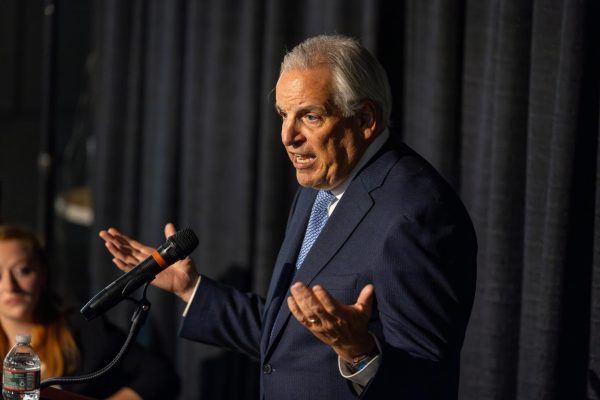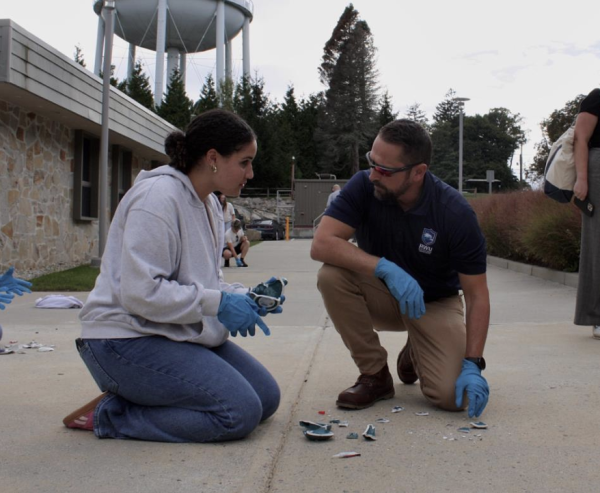Auriga String Quartet performs Dr. McKinley’s “String Quartet No. 8”
One of the keys to every profession is making connections. For Dr. Elliott Miles McKinley in the music realm, this means an unlimited supply of performers on standby.
McKinley, named after Modern American Composer Elliott Carter, is an associate professor of music composition, theory and technology at RWU. When he’s not teaching or studying astronomy, McKinley is always composing.
McKinley received his Bachelor’s degree in jazz studies from the New England Conservatory of Music (Boston), his Master’s degree in composition from University of Michigan and his Doctorate in composition from University of Minnesota (UMN).
He is also the director of the Alba Music Festival in Alba, Italy where he hosts a Composition Fellowship program for college students and takes RWU students to study abroad every May.
His work has been performed in the United States, Canada and Europe by the Pittsburgh New Music Ensemble, the Czech Philharmonic Chamber Music Society, Transient Canvas, the Minnesota Orchestra, the Warsaw Philharmonic and the Czech Radio Symphony, to name a few.
Most recently the Auriga String Quartet performed McKinley’s “String Quartet No. 8” (2016) at RWU for the first time on Sept. 23. The quartet was comprised of two violins, Erik Rohde and Hillary Kingsley, one viola, Jacob Tews, and one cello, Isaac Pastor-Chermak.
The piece was three movements — risoluto, pensive, feroce — and lasted approximately 27 minutes.
Each movement included themes that were reminiscent of movie scores, according to one of McKinley’s students.
Violinist Erik Rohde from the ensemble met McKinley while they were both studying at UMN. Rohde and his quartet spent Monday and Tuesday recording the piece at Futura Studios in Roslindale, Mass., thanks to a grant from RWU.
This is not the first time McKinley recorded with Futura. Just last spring, he recorded Six Movements for Brass Quintet, which he wrote in 2015.
McKinley was inspired by his father’s work growing up. McKinley’s father, William Thomas McKinley, was originally a jazz pianist before he began composing. W. McKinley wrote in a neo-tonal style for orchestra, chamber and vocal ensembles.
According to The New York Times, W. McKinley was known for his familiarity with an instrument’s range of colors. His scores included notes to performers such as “play with a vivid red tone” or “with silver intensity.”
So long as there’s Barolo in the cabinet, E. McKinley will continue to follow in his father’s footsteps and create modern, authentic compositions.





